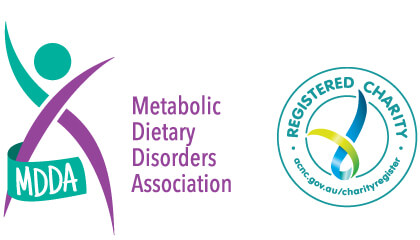Definition
Tyrosinaemia (TYRO) is an autosomal recessive inherited disorder. People with this disorder cannot effectively break down the amino acid tyrosine. Levels of tyrosine and other harmful metabolites can build up in the blood and cause damage to the body.
Diagnosis
The condition is diagnosed during newborn screening via the heel prick test – performed 48-72 hours after birth.
Prevalence
1:100,000 estimated worldwide
Treatment for Tyrosinaemia
Tyrosinaemia Type 1 is treated using the administration of nitisinone (NTBC), a protein restricted diet and amino acid supplements free from phenylalanine and tyrosine. Treatment with nitisinone has reduced the need for liver transplantation and combined with a low-protein diet allows most patients to remain in good health.
Life Saving Drugs Program
In Australia, HT-1 is treated with a synthetic reversible inhibitor of 4-hydroxyphenylpyruvate dioxygenase known as nitisinone. It is the only long-term treatment option for HT-1 through the Life Savings Drug Program (LSDP). Nitisinone was made available on the LSDP in June 2016. Orfadin® and Nityr™ are the nitisinone brands that are currently subsidised by LSDP.
The most recent clinical guidelines and criteria for the use of medicines covered in the LSDP in Australia can be read in detail here.
